毒品的危害英文课件
- 格式:ppt
- 大小:1.42 MB
- 文档页数:10
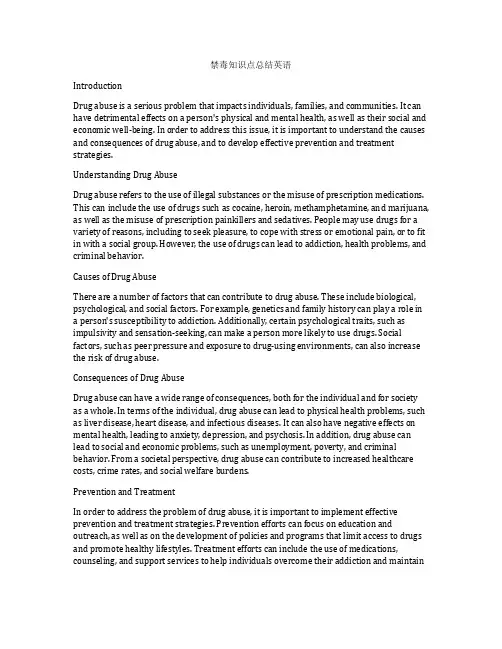
禁毒知识点总结英语IntroductionDrug abuse is a serious problem that impacts individuals, families, and communities. It can have detrimental effects on a person's physical and mental health, as well as their social and economic well-being. In order to address this issue, it is important to understand the causes and consequences of drug abuse, and to develop effective prevention and treatment strategies.Understanding Drug AbuseDrug abuse refers to the use of illegal substances or the misuse of prescription medications. This can include the use of drugs such as cocaine, heroin, methamphetamine, and marijuana, as well as the misuse of prescription painkillers and sedatives. People may use drugs for a variety of reasons, including to seek pleasure, to cope with stress or emotional pain, or to fit in with a social group. However, the use of drugs can lead to addiction, health problems, and criminal behavior.Causes of Drug AbuseThere are a number of factors that can contribute to drug abuse. These include biological, psychological, and social factors. For example, genetics and family history can play a role in a person's susceptibility to addiction. Additionally, certain psychological traits, such as impulsivity and sensation-seeking, can make a person more likely to use drugs. Social factors, such as peer pressure and exposure to drug-using environments, can also increase the risk of drug abuse.Consequences of Drug AbuseDrug abuse can have a wide range of consequences, both for the individual and for society as a whole. In terms of the individual, drug abuse can lead to physical health problems, such as liver disease, heart disease, and infectious diseases. It can also have negative effects on mental health, leading to anxiety, depression, and psychosis. In addition, drug abuse can lead to social and economic problems, such as unemployment, poverty, and criminal behavior. From a societal perspective, drug abuse can contribute to increased healthcare costs, crime rates, and social welfare burdens.Prevention and TreatmentIn order to address the problem of drug abuse, it is important to implement effective prevention and treatment strategies. Prevention efforts can focus on education and outreach, as well as on the development of policies and programs that limit access to drugs and promote healthy lifestyles. Treatment efforts can include the use of medications, counseling, and support services to help individuals overcome their addiction and maintaintheir recovery. In addition, efforts should be made to address the social and economic factors that contribute to drug abuse, such as poverty and lack of access to healthcare. ConclusionDrug abuse is a complex and multifaceted problem that requires a comprehensive approach to address. By understanding the causes and consequences of drug abuse, and by implementing effective prevention and treatment strategies, it is possible to reduce the impact of drug abuse on individuals, families, and communities. It is important for individuals, communities, and policymakers to work together to address this issue and to promote healthy and drug-free lifestyles.。

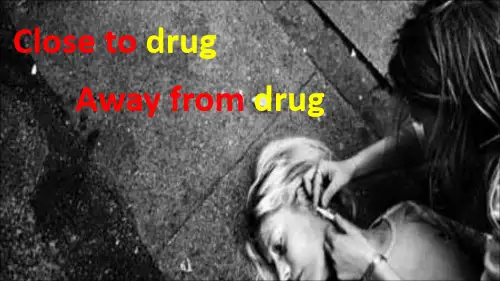
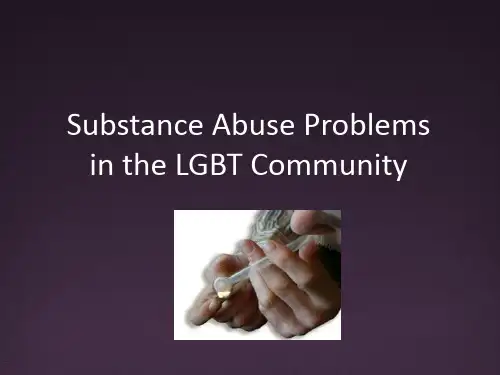
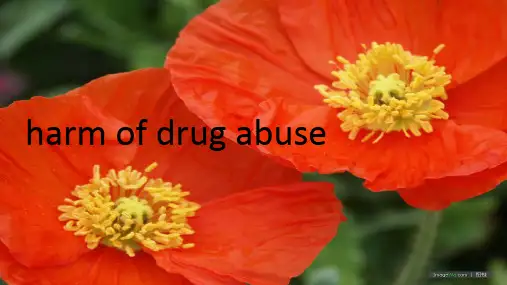

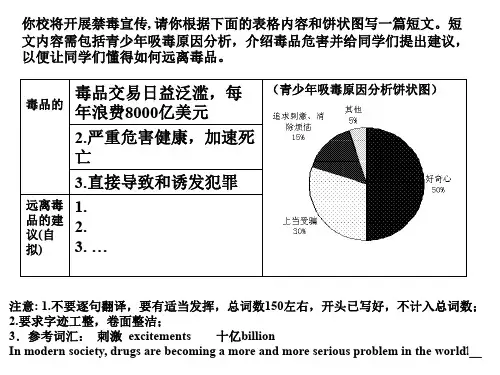



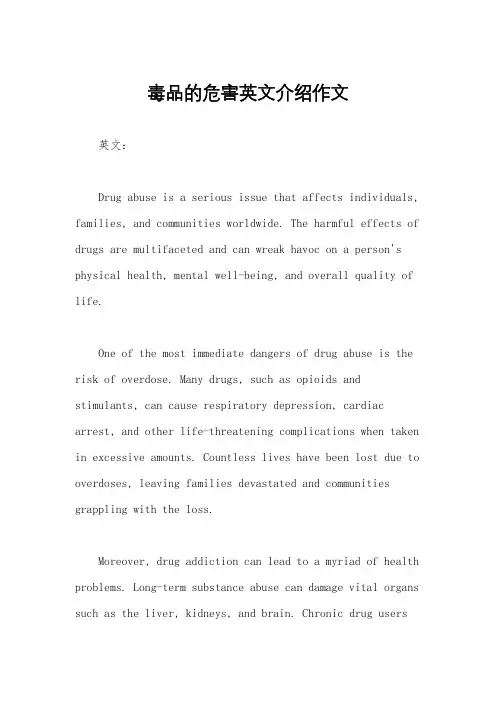
毒品的危害英文介绍作文英文:Drug abuse is a serious issue that affects individuals, families, and communities worldwide. The harmful effects of drugs are multifaceted and can wreak havoc on a person's physical health, mental well-being, and overall quality of life.One of the most immediate dangers of drug abuse is the risk of overdose. Many drugs, such as opioids and stimulants, can cause respiratory depression, cardiac arrest, and other life-threatening complications when taken in excessive amounts. Countless lives have been lost due to overdoses, leaving families devastated and communities grappling with the loss.Moreover, drug addiction can lead to a myriad of health problems. Long-term substance abuse can damage vital organs such as the liver, kidneys, and brain. Chronic drug usersare also more susceptible to infectious diseases likeHIV/AIDS and hepatitis, primarily through the sharing of needles.Beyond the physical consequences, drug abuse takes a toll on mental health. Substance abuse disorders often co-occur with other mental health conditions such as depression, anxiety, and schizophrenia. Drugs may provide temporary relief from these issues, but they ultimately exacerbate symptoms and make it harder for individuals to seek proper treatment.The social ramifications of drug abuse are profound as well. Addicts may struggle to maintain relationships with family and friends, leading to feelings of isolation and loneliness. Employment opportunities may dwindle as substance abuse interferes with job performance and reliability. Additionally, drug-related crimes, such as theft and drug trafficking, contribute to community unrest and strain law enforcement resources.In my own community, I've witnessed the devastatingimpact of drug abuse firsthand. A close friend of mine struggled with addiction to opioids, which began with prescription painkillers after a sports injury. Despite numerous attempts at rehabilitation, he succumbed to an overdose, leaving behind a shattered family and a circle of grieving friends.It's crucial for society to address drug abuse through prevention, education, and access to treatment. By raising awareness about the dangers of drugs and providing support for those struggling with addiction, we can work towards creating healthier, safer communities for everyone.中文:毒品滥用是一个严重的问题,影响着全球各地的个人、家庭和社区。
英文作文毒品危害Drug abuse is a serious problem in our society. It not only affects the health of individuals, but also has a negative impact on their families and communities. The use of drugs can lead to addiction, which can ruin a person's life and cause them to engage in criminal activities to support their habit.The use of drugs can also have a negative impact on a person's mental health. It can lead to depression, anxiety, and other mental health disorders. Drug abuse can also impair a person's judgment and decision-making abilities, leading to risky behaviors and dangerous situations.In addition to the health and mental health effects, drug abuse can also have a significant impact on a person's relationships and social life. It can lead to the breakdown of relationships with family and friends, as well as isolation and social withdrawal. Drug abuse can also lead to financial problems, as individuals may spend all theirmoney on drugs and be unable to support themselves or their families.Furthermore, drug abuse can have a negative impact on a person's education and employment opportunities. It can lead to poor academic performance, dropping out of school, and difficulty finding and maintaining employment. This can have long-term consequences for a person's future prospects and opportunities.In conclusion, drug abuse has a wide range of negative effects on individuals, their families, and their communities. It is a serious problem that requiresattention and intervention to prevent and address its harmful consequences.。